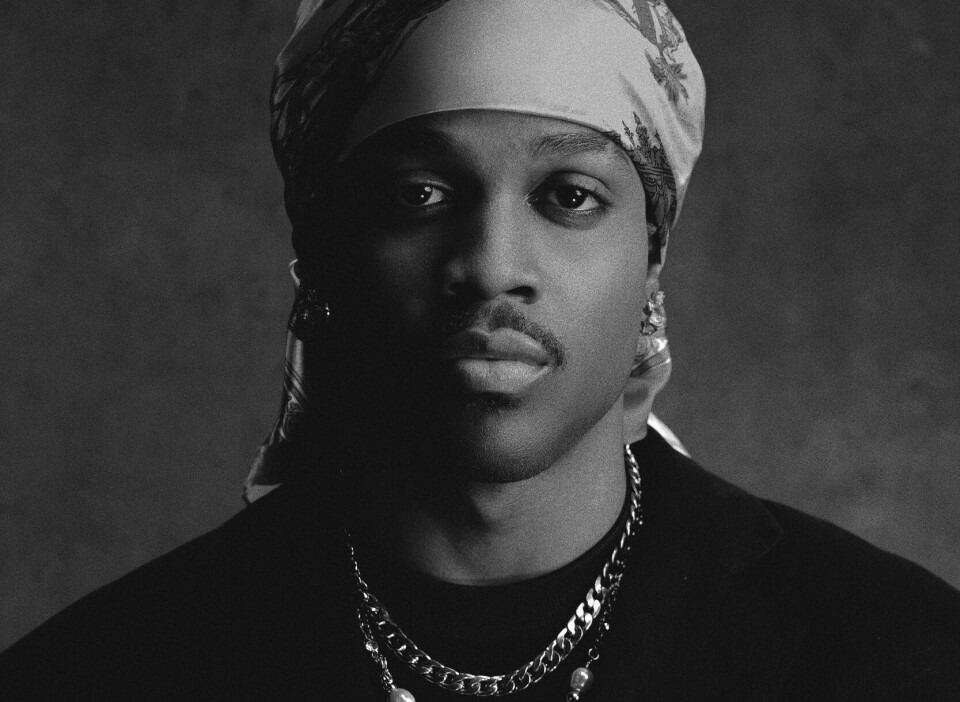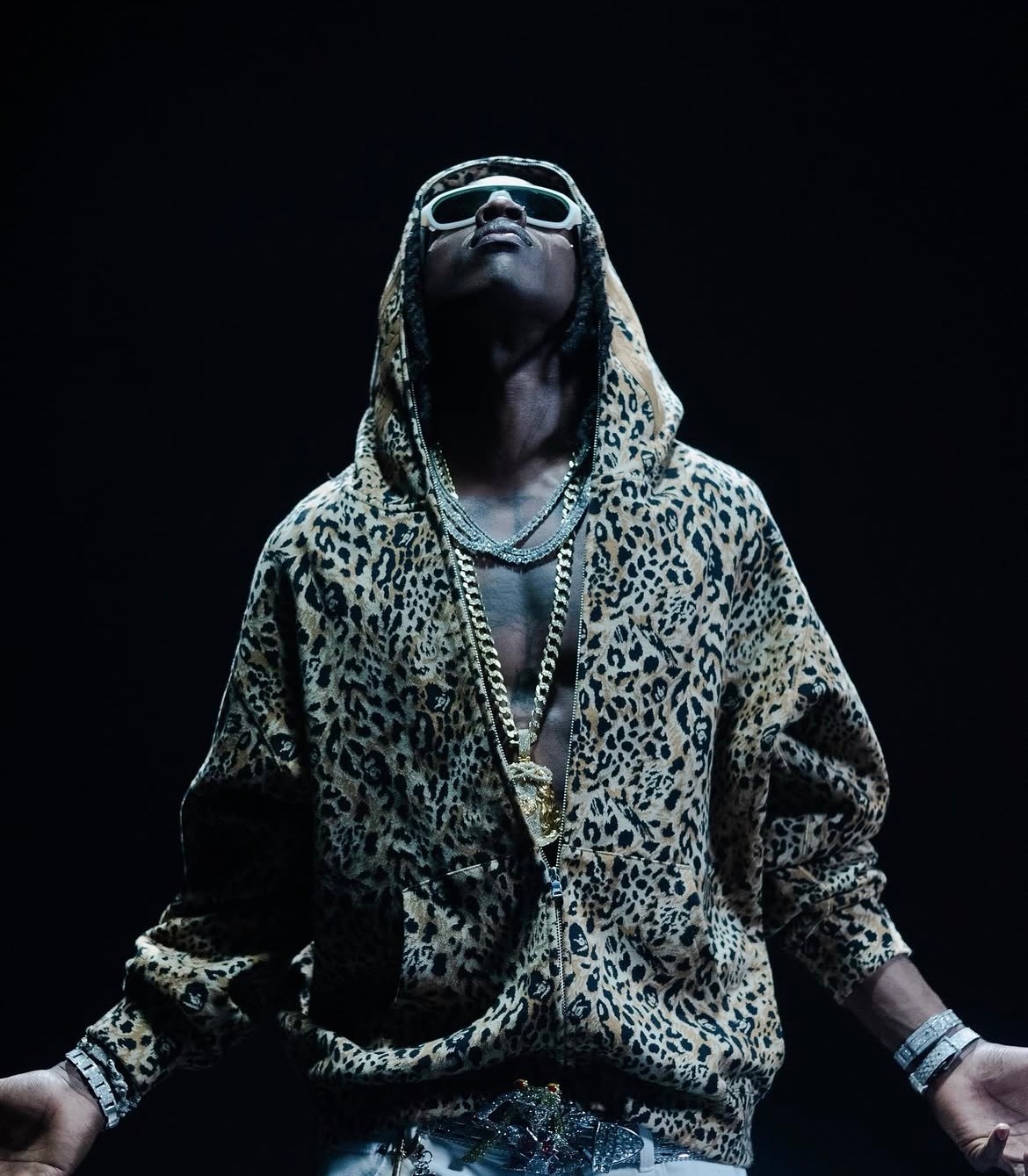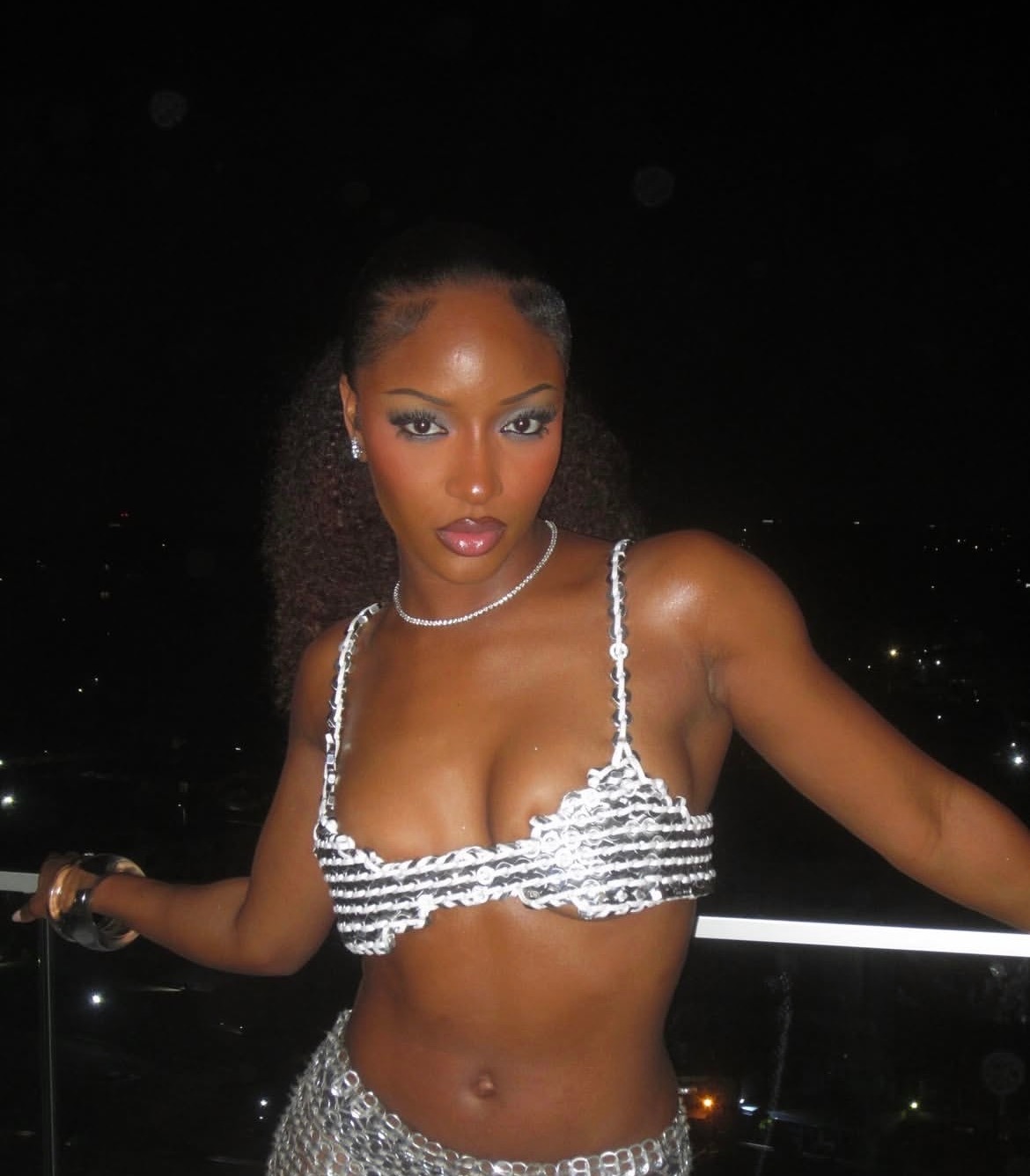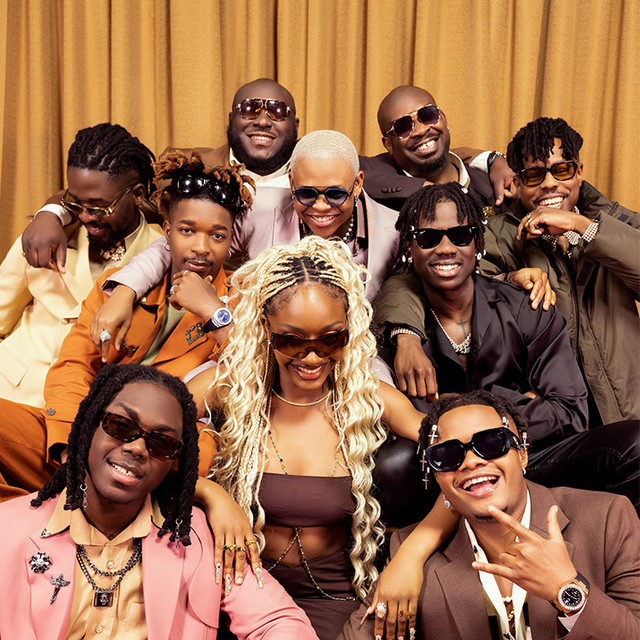On the 13th of November, 2025, as the internet buzzed with holy indignation over a new trove of emails further connecting Donald Trump with disgraced American sex offender Jeffrey Epstein and newer but no less egregious allegations against Paystack co-founder Ezra Olubi, Don Jazzy, CEO of Mavin Records, readied himself for what has now become a familiar ritual: the unveiling of a new artist on the label’s roster. “Let me not take too much of your time,” he begins, “so, tonight, by 12 midnight, I'm going to be unveiling a new Mavin (artist) for you guys.” In the announcement clip, he looks characteristically jovial. Wearing a white shirt and lying prone, he instructs his armada of followers, nearly nine million people, to turn on their notifications in anticipation of the announcement.
True to form, the announcement video sparked conversation almost immediately. Before long, a curious horde had camped in the comments section of the post, guessing who the latest debutante on Mavin’s roster is. CupidSZN is his name. Around midnight, Don Jazzy and Mavin Records announced the light-skinned, blonde dreadhead—whose honeyed vocals perfectly fit the contours of both Afrobeats and R&B—as the label's latest signee. Congratulations were in short order for CupidSZN, supplied by fans and industry colleagues. But as the days wore on, what initially started on a festive note began to take on a censorious complexion. Several music enthusiasts and critics began pushing the narrative that acts on the label sound too similar.

By way of a video captioned “MAVIN roster feels due for a risk. My thoughts on the latest MAVIN signing,” music commentator Emman Owoniyi contributed to the conversation. “The (Mavin) roster right now, it just feels very… you can’t tell them apart,” he says. He concludes his diatribe by arguing that the label might want to consider signing a “street-adjacent act” in the lineage of Fola or TML Vibez. Adeayo Adebiyi, a music commentator at Pulse NG, also weighed in on the conversation arguing that Mavin Records “might be better suited to floating a distro/label that will break the next street act than signing one themselves,” since the center “appears to have reached its elasticity point.” The vast majority of the critiques that have sprung up against the label in recent times have hewed close to Owoniyi and Adebiyi’s views. The result has been a self-propagating message inching towards a consensus position.
The recent popularity of this position—Mavin’s roster is too homogeneous and the label might benefit from signing a Street Pop act—notwithstanding, it falters because it wrongly diagnoses the problem. Consider Owoniyi’s assertion that “you can’t tell them apart.” This is categorically false. There’s no way Elestee can be mistaken for Ayra Starr, or Boy Spyce for Bayanni, or Rema for Crayon, or Magixx for Johnny Drille. One can run virtually any permutation of this exercise and arrive at the same conclusion: the artists in the label’s ranks are sufficiently distinct.

CupidSZN, the latest Mavin, has drawn comparisons to Boy Spyce and Rema. The truth however is that for the most part, the illusion of similarity between these artists and CupidSZN owes something to the natural human tendency to find patterns and processes that anchor new phenomena to existing ones. If you have followed the Nigerian music scene long enough you’d remember that Rema initially drew comparisons to Wizkid. There was a time when people would fight to the death that Joeboy and Fireboy sounded the same. Following her eponymous EP, Ayra Starr drew comparisons to Tems. Time has dispelled these allegations but at the time, those who made these claims would swear by their assertions.
Do Mavin artists, however, share certain similarities? Yes, of course. The label has a reputation for polished, radio-ready Afrobeats with strong pop sensibilities. But is this a problem? No. Most successful labels have clear-cut identities that inform the kinds of artists that make their roster. You think of Top Dawg Entertainment and what comes to mind is moody, lyrically dense Hip Hop/R&B. YBNL for the longest time was a bastion of Street Pop/ Indigenous Hip Hop. Young Money/Cash Money Records, in its heyday, had a roster of artists—Lil Wayne, Drake, Nicki Minaj, and Tyga—who shared a tendency for melodic rap and lyrics dappled with themes of wealth, bravado, and excess. Building a label of artists that share a similar ethos is crucial for two main reasons: it allows the label to operate efficiently the same system—marketing plans, staff—can be used multiple times; it also breeds a shared identity among the artists.

Mavin Records however has a problem, one they have to solve to usher in a new age. To put it simply, the label is increasingly drifting away from the zeitgeist. Art exists, among other reasons, to hold a mirror to society. And often the most successful artists are those who are able to best embody the pulse of their generation. This is as true in the world of music as it is in film and visual arts. This is, however, a phenomenon that’s well understood and documented in the “structured” art world. It’s why art history is neatly sectioned into eras—Impressionism, Modernism, Post Modernism, and Contemporary art. The art of each era tends to share a similar aesthetic that reflects the zeitgeist of said era.
What then is the defining ethos of this world? In two words: radical authenticity. Think of the figures who have dominated global politics in recent times—Donald Trump, Nick Fuentes, Zohran Mamdani—what they share in common, regardless of their political positions, is an undeniable authenticity. These guys are the diametric opposite of establishment politicians, otherwise known as the political elites. They repudiate orthodoxy in favor of a rhetoric that feels both true to them and reflective of the fraught times we inhabit.
A similar ethos has washed over global popular culture. It’s why Timothy Chalamet’s ferment and Ayo Edebiri’s whimsy have resonated with global audiences. It’s also why in the Nigerian music industry artists like Odumodublvck, Rema, Ayra Starr, Seyi Vibez, Shallipopi, Mavo, and Zaylevelten, have wielded disproportionate influence over the music industry in recent times. Regardless of talent, style, or aesthetic, what these artists share in common is a faithfulness to being radically authentic.

Ayra Starr is not just an uber-talented global popstar, she provides a vision of what a young African feminist navigating the vagaries of today’s world can look like. Rema assiduously probes the angst of contemporary youth. Omah Lay’s morose variety of Afropop—Afrodepression, if you may—speaks to a generation that has a million and one reasons to be adrift. Odumodublvck’s machismo feels at home with the anti-establishment spirit of our times, and Mavo and Zaylevelten are finding new ways of codifying Gen Z subjects.
By contrast, some of the younger artists on Mavin’s roster, many of whom are among the best singers/songwriters in the Afropop scene, are out of step with the zeitgeist. They don’t particularly tackle anything that reflects the unique times we live in.
Another way the label is out of step with this era’s demand for radical authenticity is how it unveils artists: the grand unveiling that we’ve come to know all too well. Being seen as part of a powerful establishment runs counter to the countercultural spirit of this era: it’s just not cool. Fans would rather sit with an artist in relative obscurity and gradually grow with them than listen to whoever the biggest label in the country tells them is the next big thing. A big unveiling just doesn’t work anymore, community-centered strategies and press runs aimed at providing an unfiltered version of the artist will prove more successful.
One reason for this is that artists now occupy a position previously reserved for religious and traditional figures. Fans don’t just want to listen to good music, they see their favorite artists as extensions of themselves and want to see themselves, or at least a part of themselves, reflected vividly in the music. It must be a very tricky position for the people at Mavin Records who are faced with the incongruity of seeing clearly talented acts constantly underperform. But the music industry in the past few years has undergone a radical shift. Radical authenticity, the ability to convey an earnest and non-conformist perspective on the zeitgeist, is now the most important quality for an emerging artist and if the label wants to usher in its new age, it has to fall in line with this new reality.
.svg)


.JPG)
.jpg)



.png)

